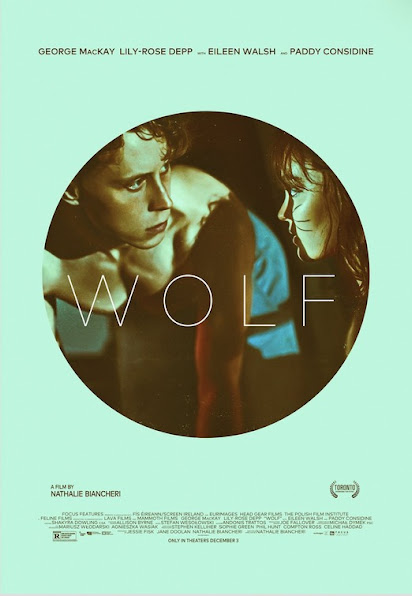Brigid Blake (Beanie Feldstein) is having her family over for Thanksgiving in the New York City apartment she's bought with her boyfriend Richard (Steven Yeun). This means Brigid's parents, Erik (Richard Jenkins) and Deirdre (Jayne Houdyshell), are coming, along with Erik's mom, Momo (June Squibb), and Brigid's sister Aimee (Amy Schumer). Everyone's bringing as much drama to the table as they are side dishes, much of it emerging in long-simmering side comments that spur on prolonged arguments. It may be a holiday, but nobody's getting a break from the torment that's plaguing this family.
Translating a play to a movie is a daunting task. On the one hand, if you make things too stagnant, you have the possibility if just delivering essentially a filmed performance of a play. On the other hand, going too flowery in making sure it doesn't come off as just a play can distract from the intimate qualities that made the source material so compelling. Karam does remarkable work threading a delicate needle here and manages to make The Humans work well as a piece of cinema. A key reason for his success is to filter his play through the lens of horror cinema. Staples of the genre, like windows so tainted you can't see out of them, jump scares, dominant shadows, they're all around here.
Rather than being used in the service of buckets of blood, these visual hallmarks, as well as an ominous mood straight out of a scary feature, are used to communicate the stifled anguish in the family at the heart of The Humans. Even Brigid's home is reflected as having endless nooks and crannies despite seeming small on the outside, a potential homage to the similarly expansive interior of the Overlook Hotel in The Shining. That's not only a great nod to a seminal film in the genre The Humans is occupying, but it provides a great detail that couldn't be properly realized on the stage. This is just one example of how the layers of details in The Humans justify its translation to the silver screen.
Karam's camera doesn't just take cues from horror films, though. He also evokes filmmakers like Yasujiro Ozu in how often his camera is placed at a great distance from the characters. I can only recall a handful of close-ups in the entire rutnime. Rather than reminding one too much of a stage production, Karam uses this distance to emphasize how trapped everybody is. The characters are framed against claustrophic hallways, pipes bursting from the ceiling, and other imperfections in their surroundings. Utilizing constant wide shots that push the characters into the background makes us aware of the fragility of their surroundings. The sense of worry and concern that plagues Erik over Brigid moving back to New York City in the wake of 9/11 is transmitted to the viewer through Karam's sense of staging and blocking.
All these impressive visual details are placed against a terrific crop of performances. Thankfully, given how much of The Humans is based on simple dialogue exchanges, there's nary a dud turn to be found here. For my money, Richard Jenkins and Jayne Houdyshell may be the very best actors here. It's thoroughly impressive how much their performances could appropriately irritate me in one moment and then elicit such enemrous sympathy from me the next. In the restrained confins of Stepehn Karam's creative vision, Jenkins and Houdyshell (the latter of whom previously portrayed her character in a Broadway version of The Humans) unearth moral complexity.
There are a handful of shortcomings to The Humans, to be certain. This includes an ending that's incredibly admirable in its dour tone and use of visuals that could only be accomplished in film, but needed some tweaking in execution. Overall, though, this is a strong drama that provides much more than just another instance of movies reflecting how holidays can tear apart families as often as they bring them together. The unique decision to filter familiar struggles through the language of horror cinema and the enormously distinct performances from the cast make it seem only natural, with the benefit of hindsight, that The Humans should make the leap from the stage to the big screen.















